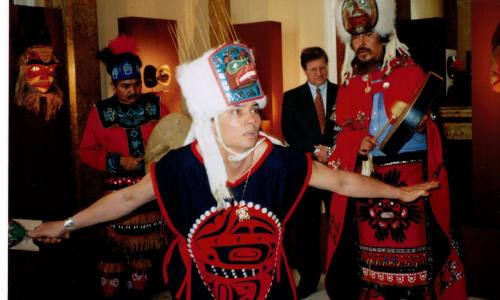
America's most famous literary icon, Mark Twain once said:
"The best way to cheer yourself up is to try to cheer somebody else up.”
This inspiring quote reminds me of the word mentoring.
It seems that there’s a secret to the success of some of the most remarkable people in history: they all had amazing mentors.
For example, Bill Gates - one of the world's richest men - had a mentor in Warren Buffet. Yves Saint Laurent had a mentor in Christian Dior, and Plato had Socrates.
So, what is a mentor?
A mentor can act as an advisor, a friend, a teacher, or even a counsellor. They’re people in your life who you respect, learn from and aspire to be similar to. Although no one can make a career decision for you, mentors are there to listen, offer you their insight, and encourage you when you’re in doubt.
A good mentor shares their invaluable knowledge, skills and experience and helps you identify your passions and envision your ideal working environment when it comes to your career.
The best mentor would be the most experienced professional you admire. They are the perfect ones from whom you can learn.
Here are some useful tips on an effective mentoring relationship:
For mentors:
-
It is not coaching; it is mentoring. You can provide advice but the final decision is your mentee’s, not yours.
-
Listening is key. You don’t have to agree with everything shared by your mentee, but at least be willing to listen and let them know that you’re there to inspire them with confidence or another perspective.
-
Be empathic. Try to understand things from your mentee’s perspective.
-
Keep everything confidential. Never share your mentee’s stories with others without their permission. It is all about mutual-respect.
For mentees:
-
Never expect benefits to be spoon-fed to you by your mentor and for them to do the work for you. Be responsible for your own learning. You are the only one who can put in the time and effort necessary.
-
Be open to your mentor’s critical feedback, opinions, and perspectives so you can learn and improve.
-
Don’t hesitate to ask your mentor questions to get the most benefit from their past experience and gain invaluable knowledge from their expertise.
I currently have three mentors: my elementary school teacher (I can’t believe it’s been more than 10 years!), my church leader, and my supervisors at my current workplace – Career Services. They all have positively influenced my personal and professional development and opened doors to other great opportunities. I can’t imagine what I would have done without their support and guidance.
In return, I now mentor first-year students through the Faculty of Communication, Art and Technology (FCAT). Through this opportunity, I can share my success and learning experiences to help others transition from high school to university.
If you don’t currently have a mentor, I highly recommend you seek one out. Here are some resources for you to visit:
Remember one golden rule of mentoring: you receive what you give. Having a mentor is not a one-way-street; being a mentor brings significant value as well. If you put the time, effort and energy into building and nurturing the mentor/mentee relationship, the reward will pay off!
Good luck!















